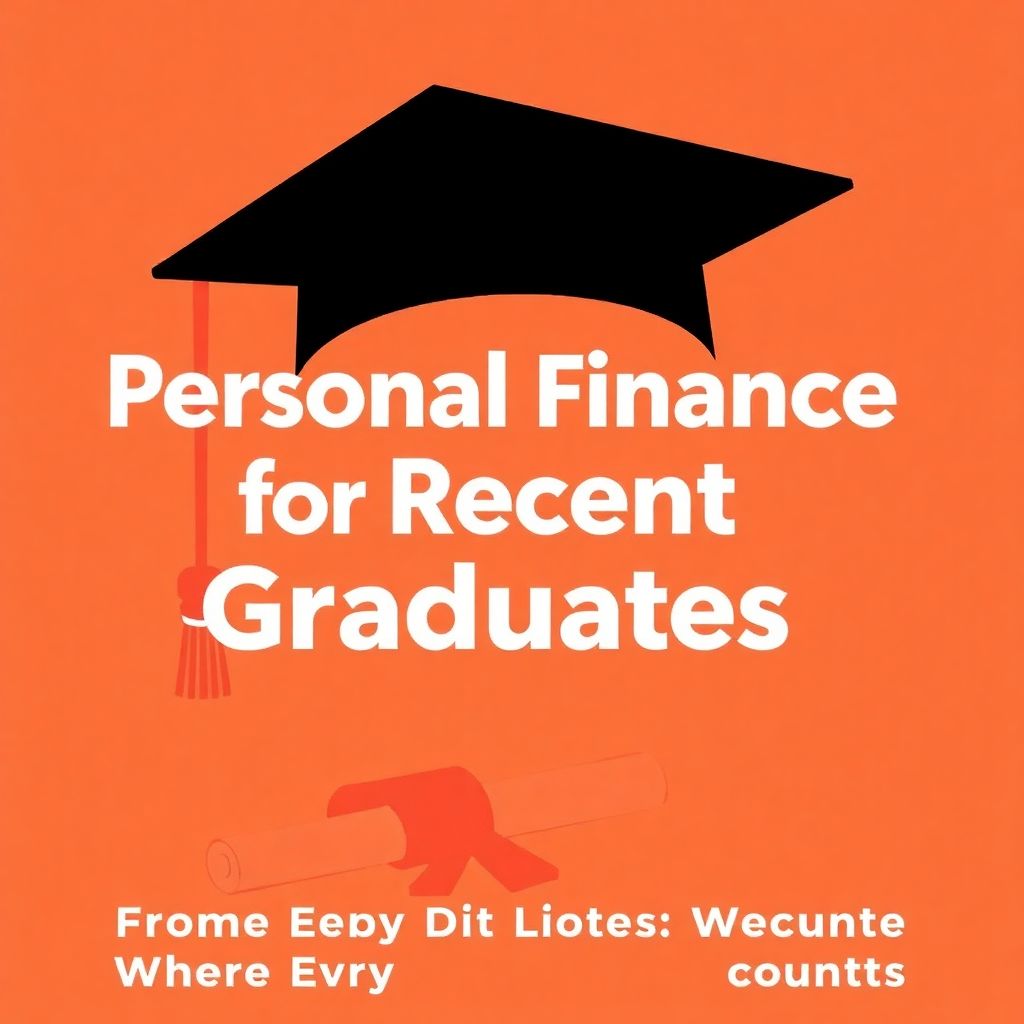“`html
Personal Finance for Recent Graduates: From Debt to Wealth
Welcome to the Real World: Where Every Dollar Counts

Graduating from college is a milestone. But once the cap and gown are packed away, reality hits hard — especially when it comes to money. From managing your first paycheck to figuring out how to tackle student loans, personal finance can feel overwhelming. The good news? 2025 brings modern tools, strategies, and trends that make financial independence more accessible than ever.
Let’s break down a practical path from student debt to sustainable wealth — no fluff, just actionable advice.
Step One: Know What You Owe and Own It
Before you dream about investing or buying that first home, it’s time to assess your financial starting point. This means facing your student loans head-on.
Here’s how to manage student debt without panicking:
– List all your loans – federal, private, subsidized, unsubsidized. Know the interest rates and repayment terms.
– Use federal repayment tools – Income-Driven Repayment (IDR) plans or Public Service Loan Forgiveness (PSLF) can reduce your monthly burden.
– Refinance smartly – With interest rates fluctuating, refinancing in 2025 makes sense only if you have stable income and strong credit.
Remember, your debt doesn’t define you. But ignoring it will cost more than interest.
Step Two: Budgeting for Recent Graduates in the Digital Age
Forget spreadsheets. In 2025, budgeting is smarter, faster, and more intuitive thanks to AI-powered apps and real-time financial tracking. But the principles remain timeless.
Use this simple strategy: 50/30/20 Rule
– 50% on needs (rent, food, transportation)
– 30% on wants (subscriptions, travel, dining out)
– 20% on savings and debt repayment
Modern budgeting apps like YNAB, Copilot, and Monarch Money sync across devices, categorize spending automatically, and even coach you on improving habits.
Quick budgeting tips:
– Automate bills and savings – your future self will thank you.
– Set “no-spend” days to build discipline.
– Monitor subscriptions — they’re silent budget killers.
Step Three: Emergency Funds Are the New Flex

In a world of economic uncertainty and layoffs driven by automation, having an emergency fund is no longer optional — it’s essential.
Aim for 3–6 months of living expenses in a high-yield savings account. Thanks to new fintech banks in 2025, you can find accounts with 4–5% APY and zero fees.
Start small. Even $50/month adds up. The key is consistency, not perfection.
Step Four: Investment Strategies for Young Adults in 2025

Investing isn’t just for the rich or the old. With fractional shares, robo-advisors, and zero-commission platforms, building wealth has never been more accessible.
Here’s what works in 2025:
– Robo-advisors with ESG options – Platforms like Betterment and Wealthfront now offer portfolios aligned with social values.
– Fractional investing – Buy $10 worth of Amazon or Tesla, not the whole share.
– Crypto cautiously – Allocate no more than 5% of your portfolio to digital assets. Use regulated platforms, and avoid meme coins.
Core principles to remember:
– Start early — compound interest is your best friend.
– Stick to index funds — they outperform most active funds over time.
– Don’t chase trends — consistency beats hype.
Pro tip:
Open a Roth IRA as soon as you have earned income. Your contributions grow tax-free, and withdrawals in retirement are tax-free too.
Step Five: Build Credit Like a Pro
Your credit score affects everything — renting an apartment, getting a job, or applying for a car loan. Start building it smartly:
– Get a secured credit card if needed.
– Pay in full, on time, every time.
– Keep your credit utilization under 30%.
In 2025, many rent payment platforms now report to credit bureaus. Use them to your advantage.
Step Six: Wealth Building for New Graduates Starts with Habits
Forget get-rich-quick schemes. Wealth is built through daily decisions, not dramatic moves.
Focus on creating these habits:
– Track your net worth monthly — it keeps you focused on the big picture.
– Automate investing — set it and forget it.
– Increase income — upskill through online certifications and freelance platforms.
Modern graduates are adopting side hustles not as a trend, but as a strategy. From remote tech gigs to content creation, diversifying income is a smart move in today’s economy.
Final Thoughts: Your First Financial Chapter Starts Now
Building financial stability after graduation isn’t about being perfect. It’s about being intentional.
By applying modern personal finance tips for graduates, understanding how to manage student debt, and embracing investment strategies for young adults, you’ll move from surviving to thriving.
The road from debt to wealth is real — and in 2025, it’s more navigable than ever.
So start where you are. Adjust as you grow. And remember: your money should work for you, not the other way around.
“`

